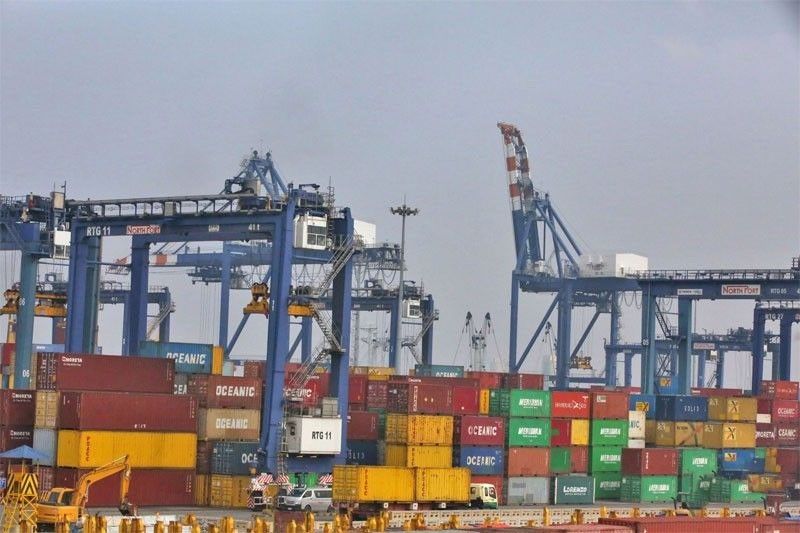Trade deficit narrows in January
Louella Desiderio – The Philippine Star March 13, 2024 | 12:00am Hundreds of containers are seen stacked at a port along Road 10 in Tondo, Manila on June 16, 2023. STAR / Ernie Penaredondo MANILA, Philippines — The Philippines posted a smaller trade deficit of $4.22 billion in January as exports picked up, preliminary data […]


Louella Desiderio – The Philippine Star
March 13, 2024 | 12:00am
Hundreds of containers are seen stacked at a port along Road 10 in Tondo, Manila on June 16, 2023.
STAR / Ernie Penaredondo
MANILA, Philippines — The Philippines posted a smaller trade deficit of $4.22 billion in January as exports picked up, preliminary data from the Philippine Statistics Authority (PSA) showed.
The balance of trade in goods or difference between the exports and imports value in January was 24 percent lower than the $5.56 billion shortfall recorded in January 2023.
The January trade gap, however, was higher than the $4.18 billion deficit in December 2023.
Philippine merchandise exports rose by 9.1 percent to $5.94 billion in January from $5.44 billion in the same month in 2023.
ING senior economist Nicholas Mapa said the export growth was driven primarily by the bounce in electronics.
Electronic products, the country’s top export, grew by 16.3 percent to $3.45 billion in January from the previous year’s $2.97 billion.
Mapa said there has been a modest pickup in electronics from higher value-added exporters such as South Korea and Taiwan over the past few months.
“Hopefully, demand for our electronics can be sustained this year, although we note soft demand from major markets given similarly modest growth momentum in developed markets,” he said.
Oikonomia Advisory & Research Inc. president and chief economist John Paolo Rivera said the peso, which has remained relatively weaker, has given exporters incentive to produce more.
Looking ahead, China Banking Corp. said in a commentary that a modest recovery in semiconductors would likely lift exports, but the prevailing global landscape may remain challenging for trade activity especially with geopolitical issues affecting commercial shipping and the persisting weakness in Chinese demand for Philippine exports.
While the government is happy with the rebound in exports, Trade Undersecretary Ceferino Rodolfo told reporters there are global headwinds that continue to pose risks to the sector.
“We remain steadfast in terms of our commitment to work with the industry sectors into the exporting sector to ensure that despite the headwinds, we continue to explore all of the opportunities,” Rodolfo said.
Aside from electronics, Rodolfo said the government is promoting other sectors for exports such as processed food.
Data showed the US remained the top destination for Philippine exports as the amount reached $902.33 million and accounted for 15.2 percent of the total in January.
Imports, meanwhile, slipped by 7.6 percent to $10.16 billion in January from $11 billion in the same month in 2023.
By commodity group, mineral fuels, lubricants and related materials posted the biggest drop amounting to $733.27 million in January.
This was followed by electronic products, which declined by $254.43 million, as well as metalliferous ores and metal scrap with a $103.87-million drop.
According to the PSA, China was the country’s largest source of imported goods valued at $2.65 billion or 26.1 percent of the total in January this year.
Total external trade in goods declined 2.1 percent to $16.09 billion in January from $16.44 billion in 2022.














